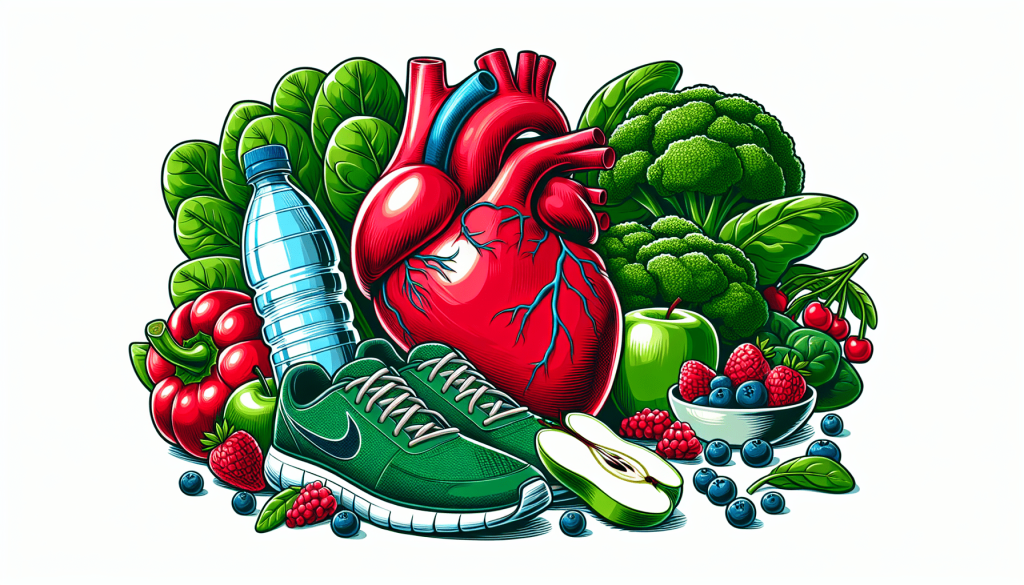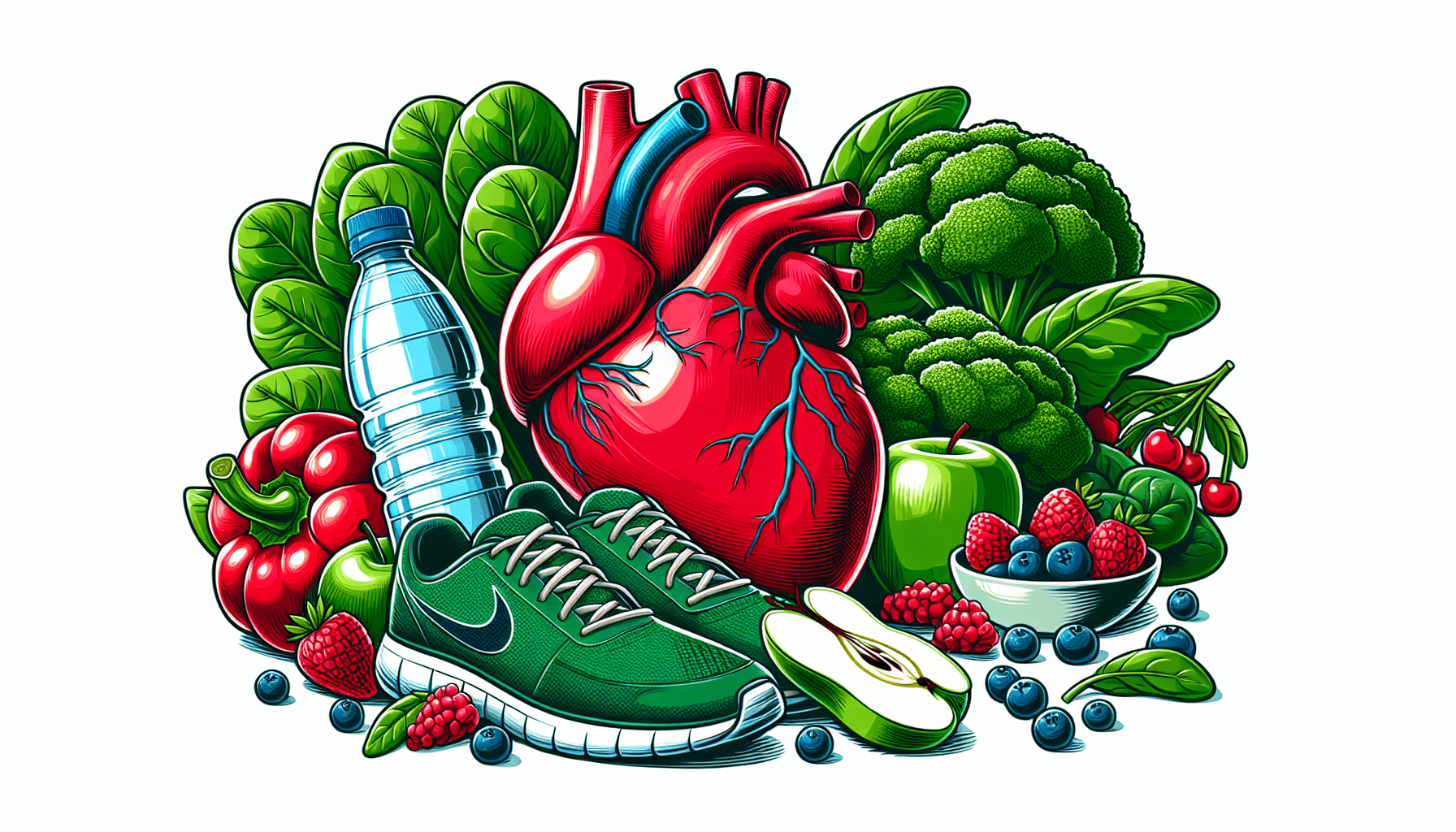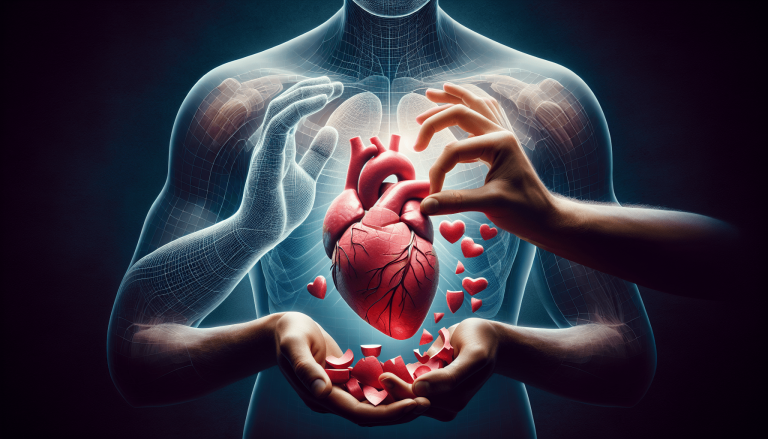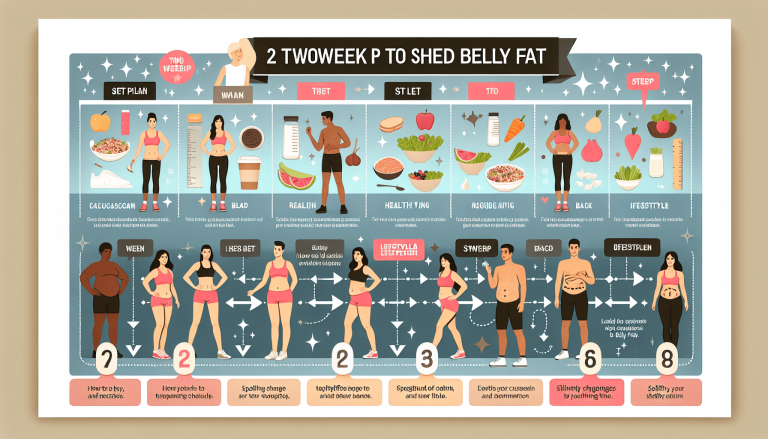What Is The Fastest Way To Improve Heart Health?
If you’ve been wondering about the quickest and most effective ways to boost your heart health, you’re in the right place. In this article, we dive deep into practical tips, lifestyle tweaks, and scientific insights to help you understand and implement heart-healthy habits with ease. Discover how simple changes in your daily routine—like diet adjustments, regular exercise, and mindful relaxation techniques—can make a significant impact on your cardiovascular well-being. You’ll be pleasantly surprised at how these small, manageable steps can lead to a stronger, healthier heart in no time. Have you ever wondered what the fastest way is to improve heart health? It’s a question many people ponder as heart health becomes an increasingly important topic in today’s health-conscious society.
Whether you’re striving to prevent heart disease or just want to give your heart a boost, we’re here to help. Let’s explore some effective, rapid strategies for fostering a healthier heart.

Understanding Heart Health
Before jumping into the fastest ways to improve heart health, it’s crucial to understand what heart health entails. When you take care of your heart, you are lowering your risk of heart disease, heart attacks, and stroke, among other problems.
What Does Heart Health Mean?
Heart health refers to the overall condition and functioning of your cardiovascular system, including the heart and blood vessels. A healthy heart effectively pumps blood throughout your body, delivering nutrients and oxygen while removing waste products. Key factors contribute to heart health, such as:
- Blood Pressure: Keeping your blood pressure within a healthy range prevents excessive strain on your heart.
- Cholesterol Levels: Maintaining optimal cholesterol levels minimizes the risk of plaque build-up in arteries.
- Blood Sugar Levels: Managing blood sugar prevents damage to your heart’s arteries.
- Body Weight: Keeping a healthy weight reduces the heart’s workload.
Why Is Heart Health Important?
Taking care of your heart isn’t just about living longer; it’s about living better. Good heart health can lead to a more active and energized life. It can:
- Increase longevity
- Improve quality of life
- Reduce healthcare costs
- Promote extended physical activity
The Fastest Ways to Improve Heart Health
1. Exercise Regularly
Exercise is one of the most effective and quickest ways to improve your heart health. It improves cardiovascular function, reduces blood pressure, and helps maintain a healthy weight.
Types of Exercises
- Aerobic Exercise: Activities like walking, running, or cycling that get your heart rate up.
- Strength Training: Building muscle helps to burn fat and maintain a healthy weight.
- Flexibility and Balance: Yoga and stretching exercises are beneficial for overall health and reducing injury risk.
| Exercise Type | Examples | Frequency/Duration |
|---|---|---|
| Aerobic | Running, Swimming | 150 minutes of moderate activity or 75 minutes of vigorous activity per week |
| Strength | Weight Lifting, Resistance bands | 2 days/week, targeting major muscle groups |
| Flexibility | Yoga, Tai Chi | Preferably daily, at least 10 minutes/day |
2. Adopt a Heart-Healthy Diet
Diet plays a critical role in heart health. Eating the right foods can quickly improve cholesterol levels, lower blood pressure, and reduce inflammation.
Key Components of a Heart-Healthy Diet
- Fruits and Vegetables: Rich in vitamins, minerals, and fiber.
- Whole Grains: Oats, whole-wheat bread, and brown rice.
- Healthy Fats: Sources like avocados, nuts, and olive oil.
- Lean Proteins: Chicken, fish, beans, and legumes.
- Reduction of Sodium and Sugar: Minimizing processed foods and sugary drinks.
| Food Category | Examples | Benefits |
|---|---|---|
| Fruits/Veggies | Berries, leafy greens | High in fiber, vitamins, and antioxidants |
| Whole Grains | Quinoa, brown rice | Improve digestion and lower cholesterol |
| Healthy Fats | Avocado, olive oil | Reduce bad cholesterol |
| Lean Proteins | Fish, beans | Supply essential amino acids |
| Low Sodium/Sugar | Fresh produce over processed foods | Lower blood pressure and reduce heart disease risk |
3. Quit Smoking
Smoking is highly detrimental to heart health, increasing the risk of heart disease and stroke. Quitting smoking can rapidly improve your heart health, and the benefits start almost immediately:
- 20 Minutes: Blood pressure and heart rate begin to recover.
- 12 Hours: Carbon monoxide levels in the blood drop to normal.
- 1 Year: Risk of coronary heart disease is half that of a smoker’s.
4. Manage Stress
Chronic stress can negatively impact heart health by increasing blood pressure and contributing to unhealthy coping mechanisms, like overeating or smoking.
Simple Stress Management Techniques
- Mindfulness and Meditation: Reducing stress through focused breathing and meditation.
- Physical Activity: Exercise is a natural stress reliever.
- Hobbies and Leisure Activities: Engaging in activities you enjoy can lower stress levels.
5. Regular Health Screenings
Regular check-ups and health screenings can catch potential problems early, making them easier to manage.
- Blood Pressure Screening: Regular checks help in monitoring for hypertension.
- Cholesterol Tests: Knowing your levels can help manage heart disease risk.
- Blood Sugar Tests: Monitoring sugar levels is crucial for preventing diabetes-related heart issues.
| Screening Type | Recommended Frequency |
|---|---|
| Blood Pressure | At least once every two years |
| Cholesterol | Every 4-6 years for adults over 20* |
| Blood Sugar | Every 3 years for adults over 45** |
* More frequent if you have risk factors for heart disease ** More frequent if you are overweight or at risk for diabetes
Additional Strategies for Rapid Heart Health Improvement
6. Limit Alcohol Consumption
Excessive alcohol can lead to high blood pressure, heart failure, and even stroke. Moderation is key:
- Men: Up to two drinks per day.
- Women: One drink per day.
7. Maintain a Healthy Weight
Being overweight or obese strains the heart, making it work harder to pump blood. Aim for a BMI between 18.5 and 24.9 and strive for a waist circumference below:
- 40 inches for men
- 35 inches for women
8. Get Adequate Sleep
Lack of sleep can lead to heart problems. Adults should aim for 7-9 hours of sleep per night. Quality sleep improves overall heart health by regulating blood pressure and reducing stress hormones.
9. Stay Hydrated
Proper hydration supports healthy blood flow and helps the heart pump more effectively. Aim for:
- Women: About 9 cups (2.2 liters) per day.
- Men: About 13 cups (3 liters) per day.
10. Limit Caffeine Intake
While moderate caffeine consumption can be part of a healthy diet, excessive intake may cause heart palpitations and increased blood pressure.
- Recommended: No more than 400 mg per day (about four 8 oz cups of brewed coffee).

Myths About Improving Heart Health Quickly
Myth 1: Fatty Foods Are Always Bad
Not all fats are created equal. Avoid trans fats and limit saturated fats, but include monounsaturated and polyunsaturated fats in your diet.
Myth 2: Only Aerobic Exercises Matter
Though aerobic exercise is crucial, strength training and flexibility exercises also play significant roles in maintaining heart health.
Myth 3: Supplements Can Replace a Healthy Diet
No supplement can replace the benefits of a balanced, heart-healthy diet. Though some may offer benefits, they should not be your main strategy for heart health.
Myth 4: You Can Make Up for a Bad Lifestyle with Medication
Medications can help manage conditions but cannot undo the damage caused by an unhealthy lifestyle. Medication should complement a healthy lifestyle, not replace it.
Overcoming Barriers to Heart Health
Time Constraints
Finding time can be challenging, but small changes make a significant impact. Take the stairs instead of the elevator, walk or bike for short errands, and squeeze in quick exercises during breaks.
Cost of Healthy Eating
Eating well doesn’t have to be expensive. Buy seasonal produce, plan your meals to reduce waste, and look for sales and discounts on healthy items.
Lack of Motivation
Staying motivated may be tough. Setting small, achievable goals, finding a workout partner, and keeping a journal can keep you on track.
Conflicting Information
There’s a lot of conflicting health advice out there. Stick to reputable sources and consider consulting with a healthcare professional for personalized guidance.
Conclusion
So, what is the fastest way to improve heart health? It’s not about one magic bullet but a combination of lifestyle changes that work together. Regular exercise, a balanced diet, quitting smoking, managing stress, and getting regular health screenings can collectively lead to rapid improvements in heart health.
Now that you’re equipped with the knowledge, the next step is to incorporate these changes into your daily life. Start small, stay consistent, and remember that even minor adjustments can have substantial impacts. Your heart will thank you!
Additional Resources

ADVANCED ARTERY HEALTH, BLOOD FLOW AND CARDIOVASCULAR SUPPORT FORMULA
Helps Maintain Healthy Arteries, Improves Blood Flow & Blood Pressure Control, and Designed to Boost Overall Cardiovascular Health. (Resupply your body with these vital heart nutrients now)







